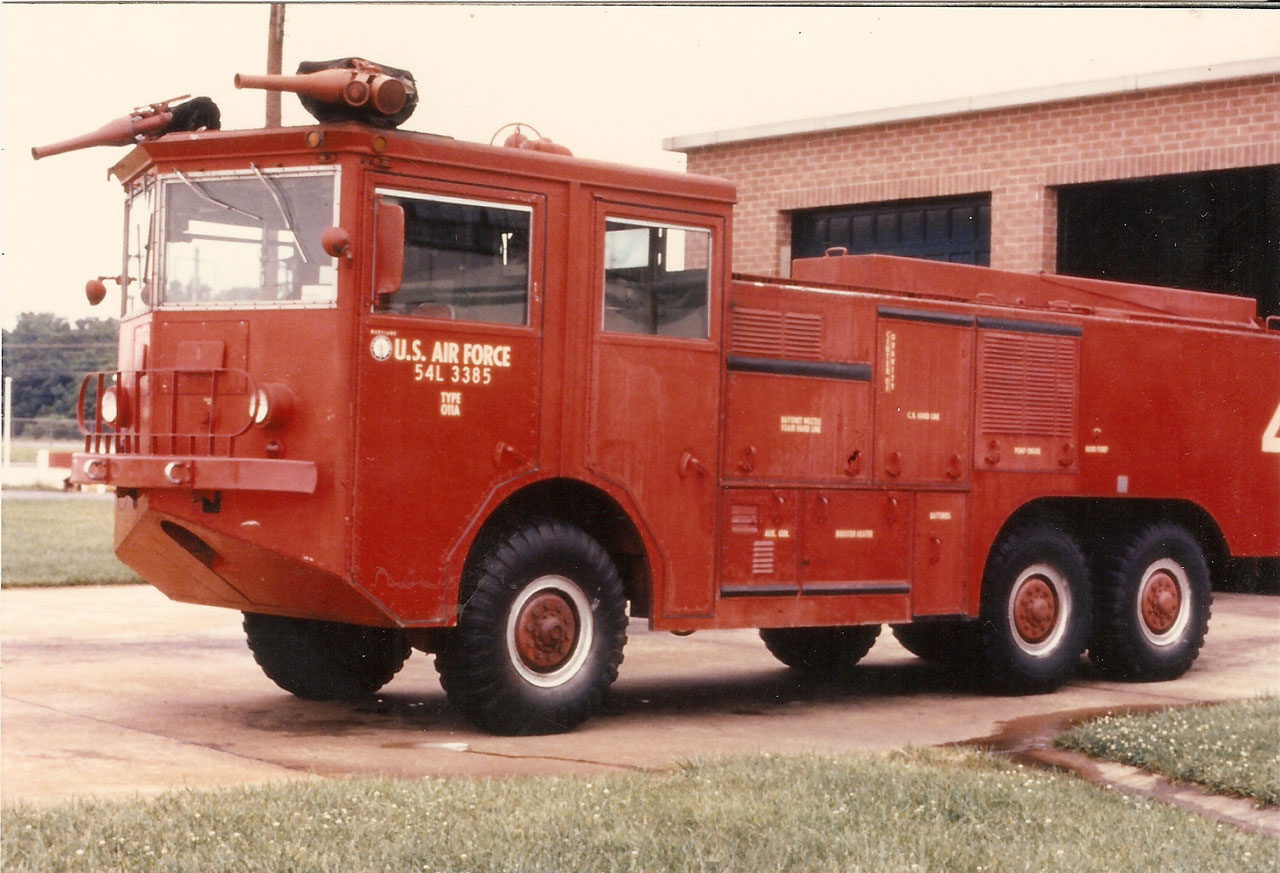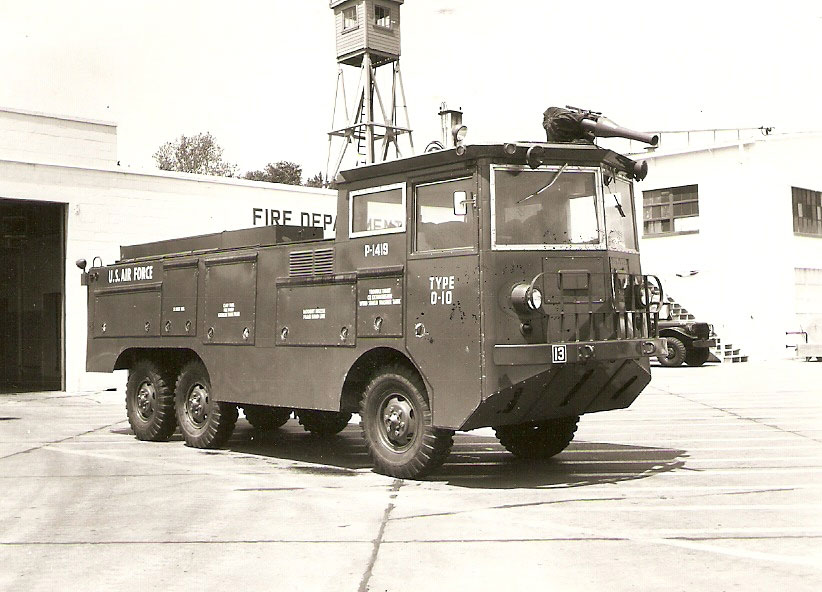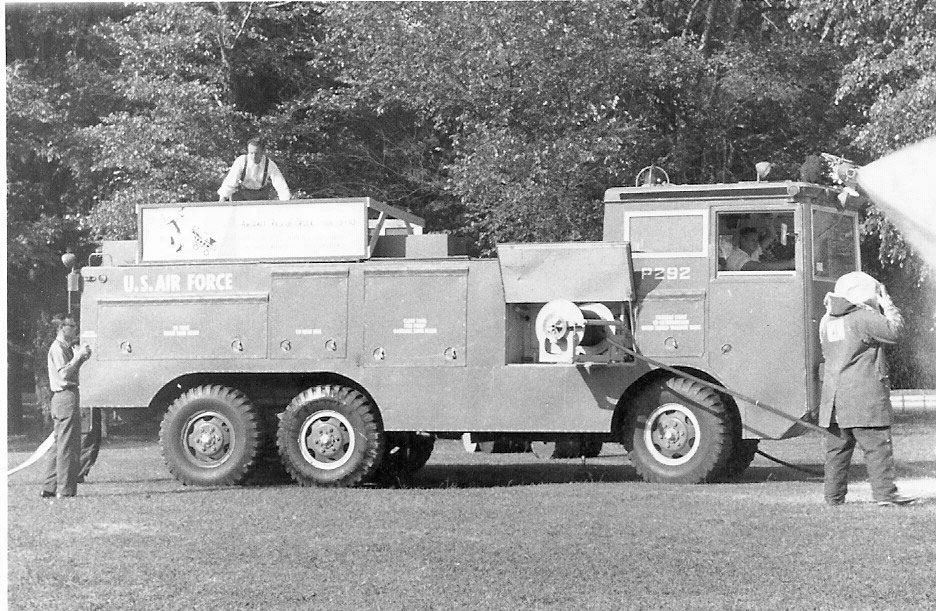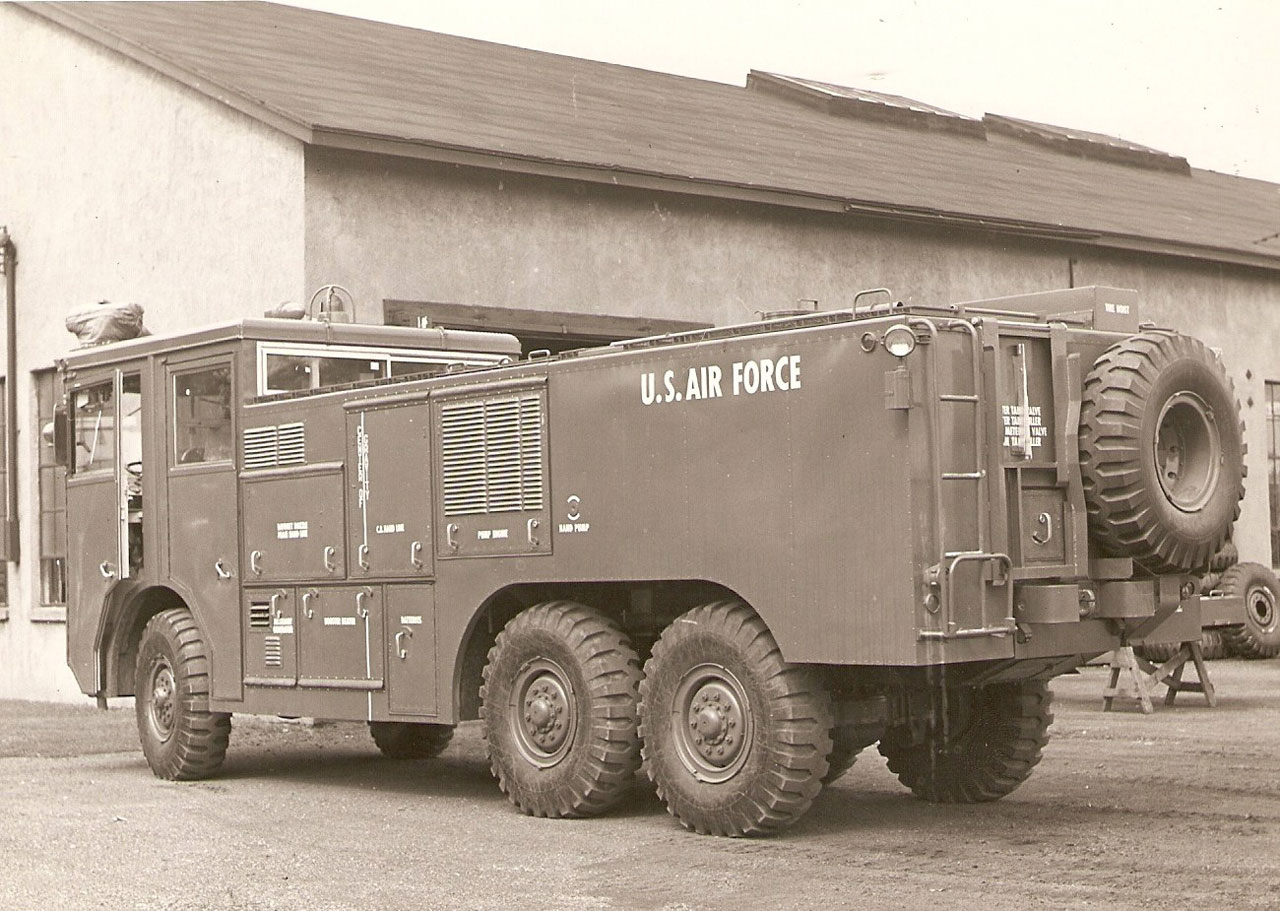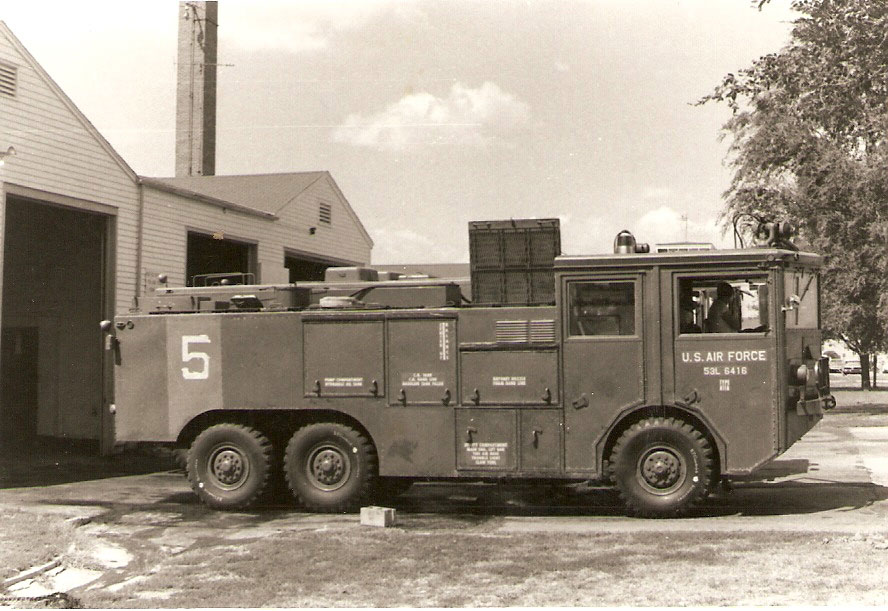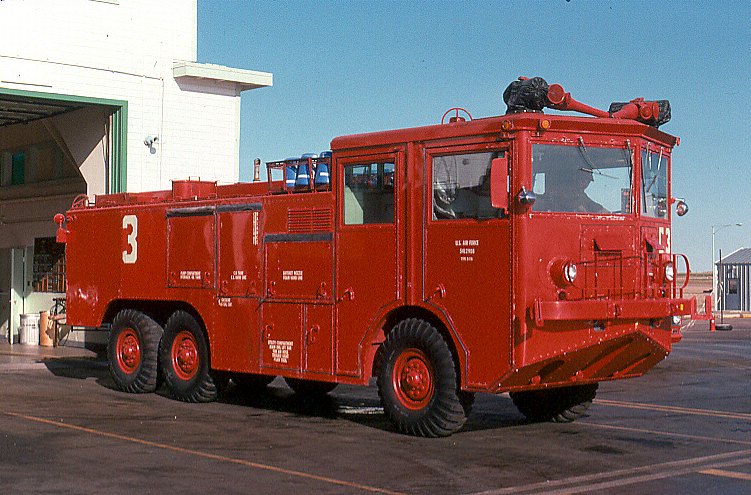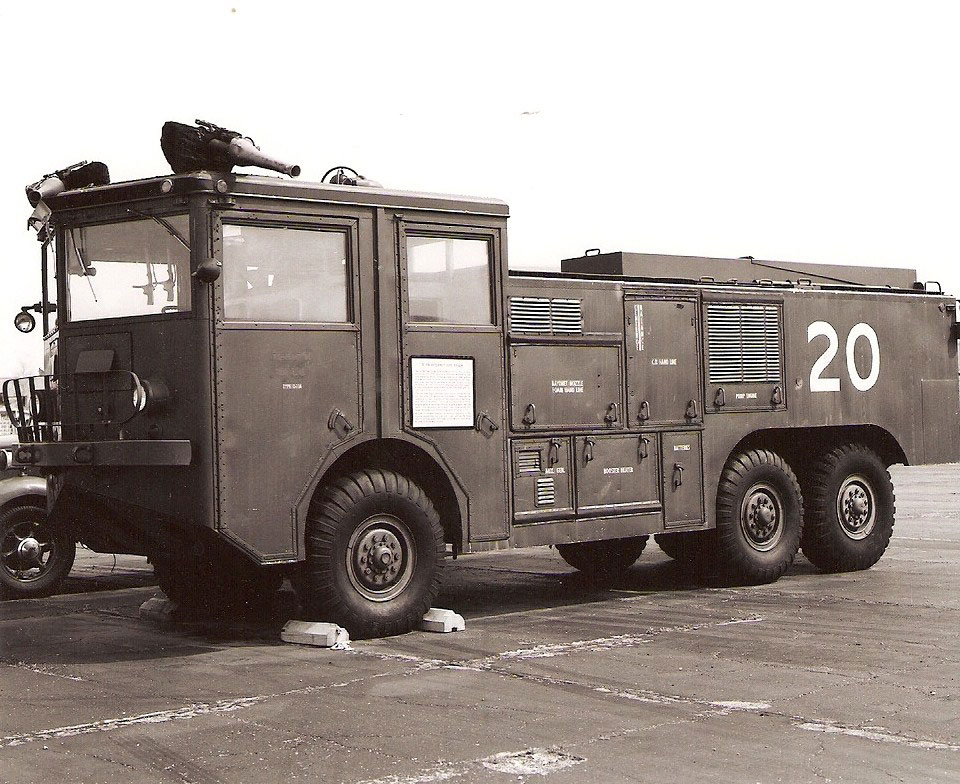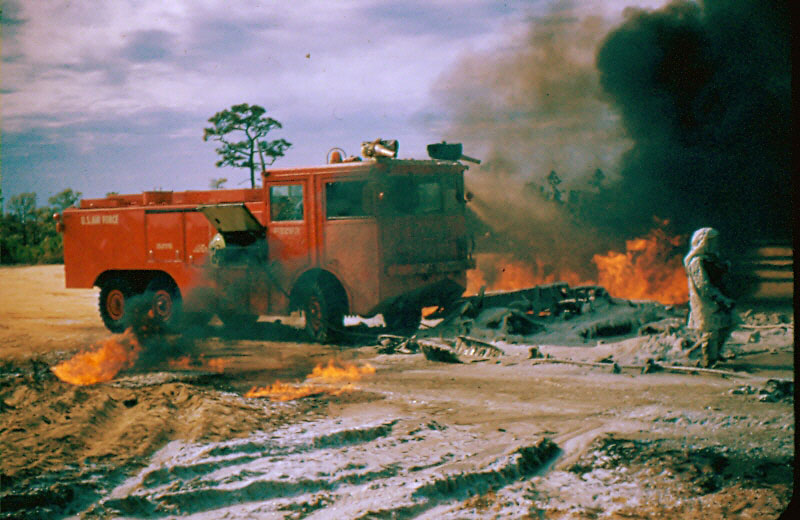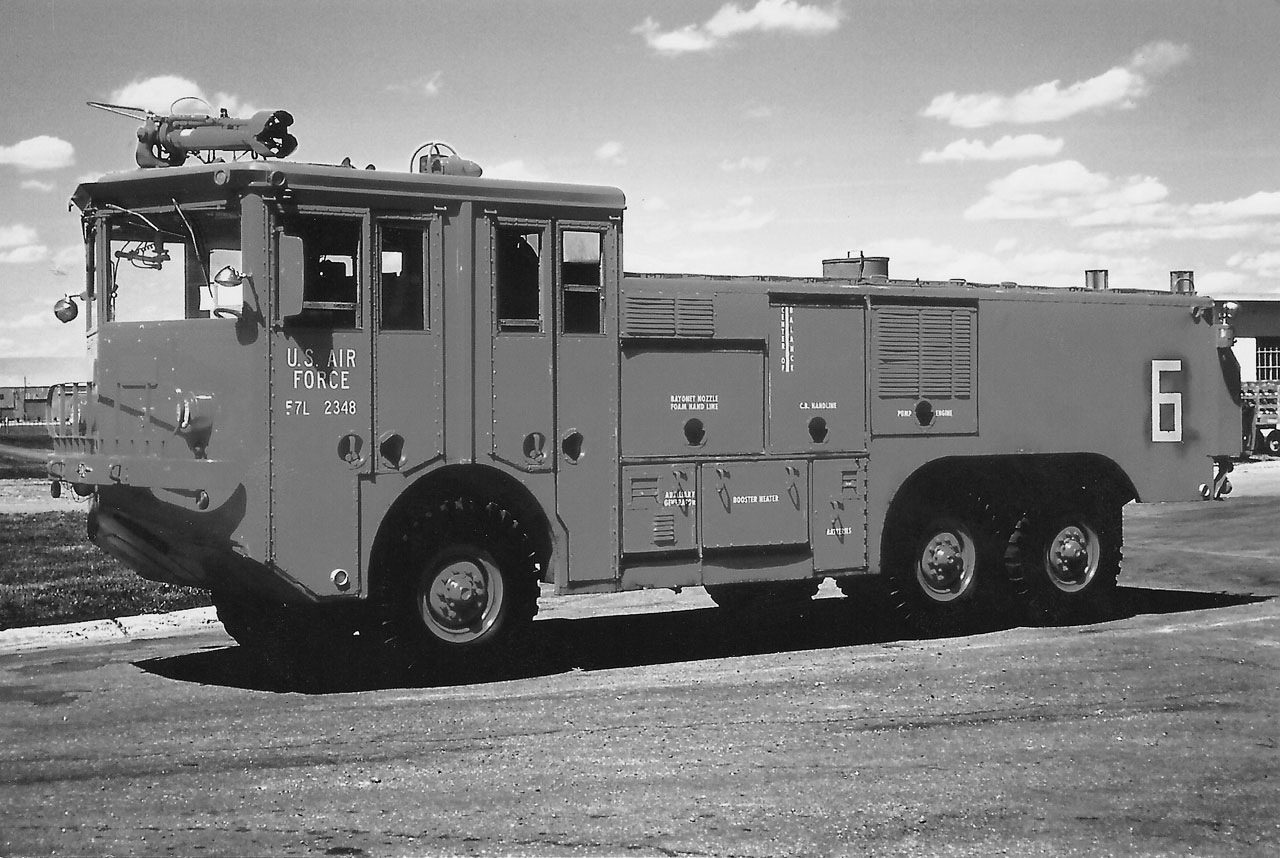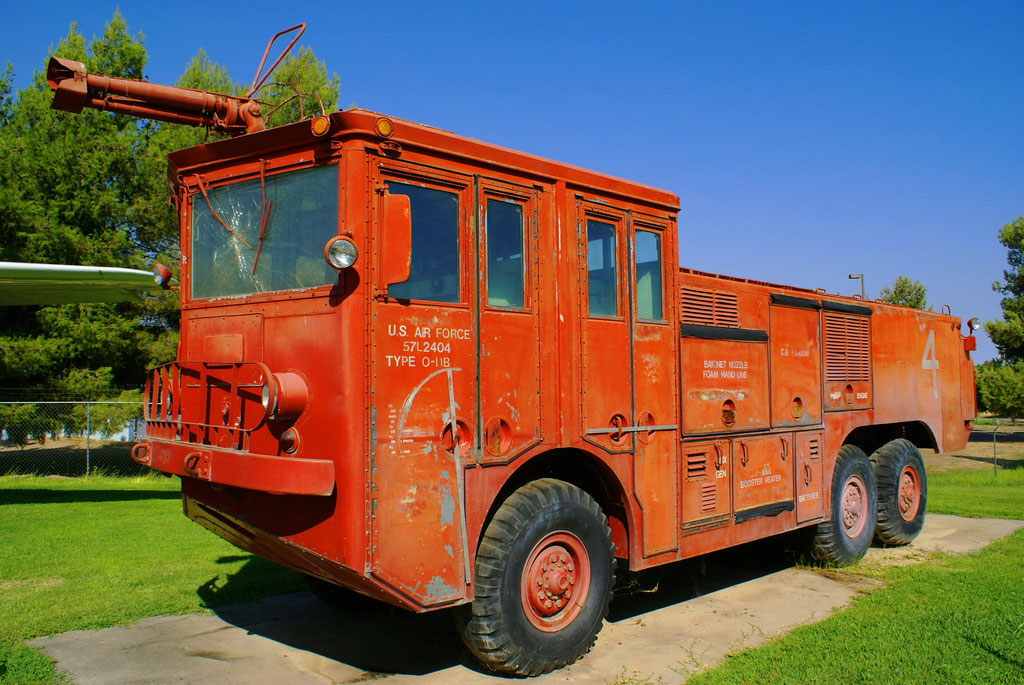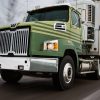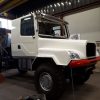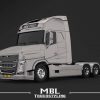American LaFrance
Military
American LaFrance Type 0-10 / 0-11A / 0-11B
With the outbreak of the Korean War in 1950, America got the Cold War jitters. Federal money was made available to purchase fire apparatus for Civil Defence and to bolster local fire protection. The American LaFrance Foamlite Co. was awarded several large contracts to build a new generation of advanced crash fire rescue trucks for the United States Air Force.
The first 0-10 CFR vehicle was handed over to the USAF in 1951. Over the next eight years, American LaFrance and Marmon-Herrington built more than 1,100 of these boxy all-terrain 0-10, 0-11A and 0-11B crash trucks, which could be airlifted anywhere in the world.
The U.S. Air Force 0-10 weighed 26,900 pounds (ca. 12 t) completely loaded with 4,500 pounds (ca. 2 t) of fire fighting agents, which were primarily carbon dioxide and a foam solution. Mechanically the 0-10 fit very well into the contemporary military fleet in that it used the same Continental Model R6602-71 engine used in the M-series 5-ton trucks, and the Spicer 6455 five-speed transmission and Timken T-136-1 two-speed transfer were also already in the supply system. The 602 cubic inch (ca. 10 l) 240 hp engine gave a top speed of 60 miles per hour (ca. 97 km/h). A 300 gpm Hale pump was separately powered by a small four-cylinder Continental Model PE 90 engine.
The Type 0-11A became the second version. Dual foam nozzles replaced the single nozzle on the forward cab roof and four cab doors help to identify this type. The wheelbase had grown 25 inches (0.64 m) to 190 inches (ca. 5 m), and overall length had been extended from 26 feet, 5 inches, to 30 feet, 4 inches.
Part of the size increase involved higher capacity for the fire fighting agents: 900 gallons (3.41 m³) of water, 100 gallons (0.38 m³) of foam, and 40 gallons (0.15 m³) of bromochlormethane. The drive train had also been changed, and a Continental S 6820-8 engine with 820 cubic inches (ca. 13 l) and 310 horsepower had been installed, along with a Spicer 6854 or 6855 five-speed transmission and a two-speed Timken T-138 transfer case. Tires were bigger (14.00×20 instead of 12.00×20). The auxiliary engine for the Hale discharge pump was a Continental air-cooled eight-cylinder model PE-200-2.
American LaFrance’s Type 0-11B was the last of the 0-10/0-11 series. They featured split and double hinged doors which allowed closer maneuvering, 11 inches (ca. 28 cm) longer overall length (at 31 feet, 3 inches), and a 100 gallon (0.38 m³) increase in the amount of water carried (to 1000 gallons (3.79 m³)). Other things were the same as the Type 0-11A.


